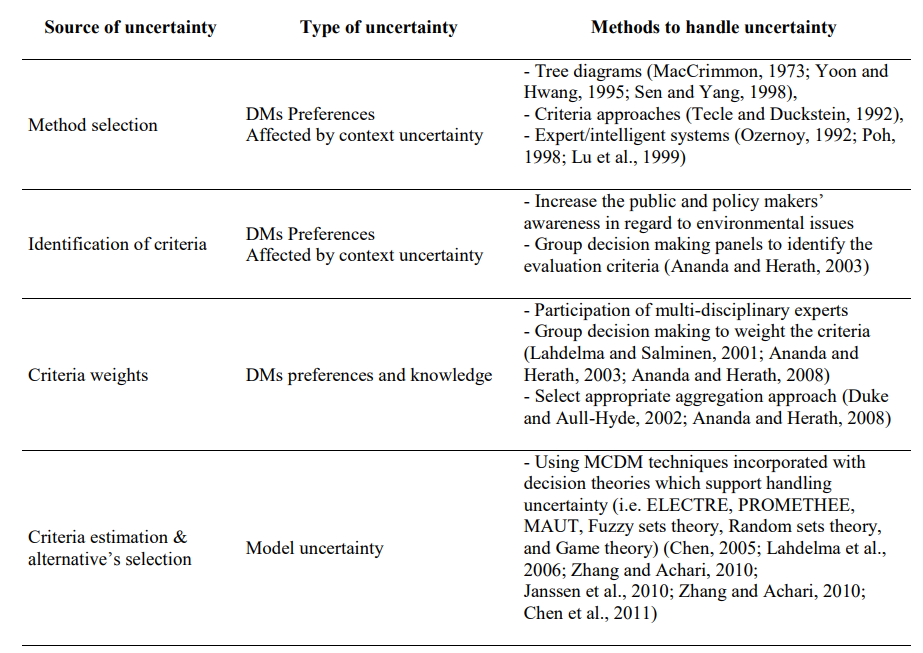In MCDA, which family methods deal with uncertain criterion-specific values?
What is MCDA?
Multiple-criteria decision analysis, refereed as MCDA, is a sub-field of Operations Research for aiding in decision making when several objectives have to be considered.
Suppose you have $m\in \mathbb N^*$ alternatives which can be projects, candidates, drugs and so on, depending on your decision problem. And suppose you have $n\in\mathbb N^*$ criteria which asset the $m$ alternatives.
A simple instance of this is:
- You have $m=100$ projects
- You have $n=3$ criteria which are:
- Cost of each project
- Environmental impact of each project
- Probability of success of each project
An example of uncertainty
Then you have a dataset of $m$ rows and $n$ columns. When considering this dataset, you could ask yourself which criteria are most important and which aren't? Is the environmental impact of each project more important than the cost of each project? This question defines the criteria's weights. Many MCDA techniques have already been developed for weights infering (e.g. ELECTRE family) or dealing with incomplete weight information (e.g. SMAA family or RPM family).
Criterion-specific values uncertainty
Another question about this dataset is what if the evaluations of the alternatives' criterion-specific values are uncertain? (e.g. we only know that the cost of one project is within $[3,6]$M€ for interval uncertainty, but it can be fuzzy intervals, distribution laws, missing values and so on). As far as I know, RPM family as well as SMAA methods deal with this kind of uncertainties, and my question is, are there other MCDA family methods dealing with such uncertainties?
